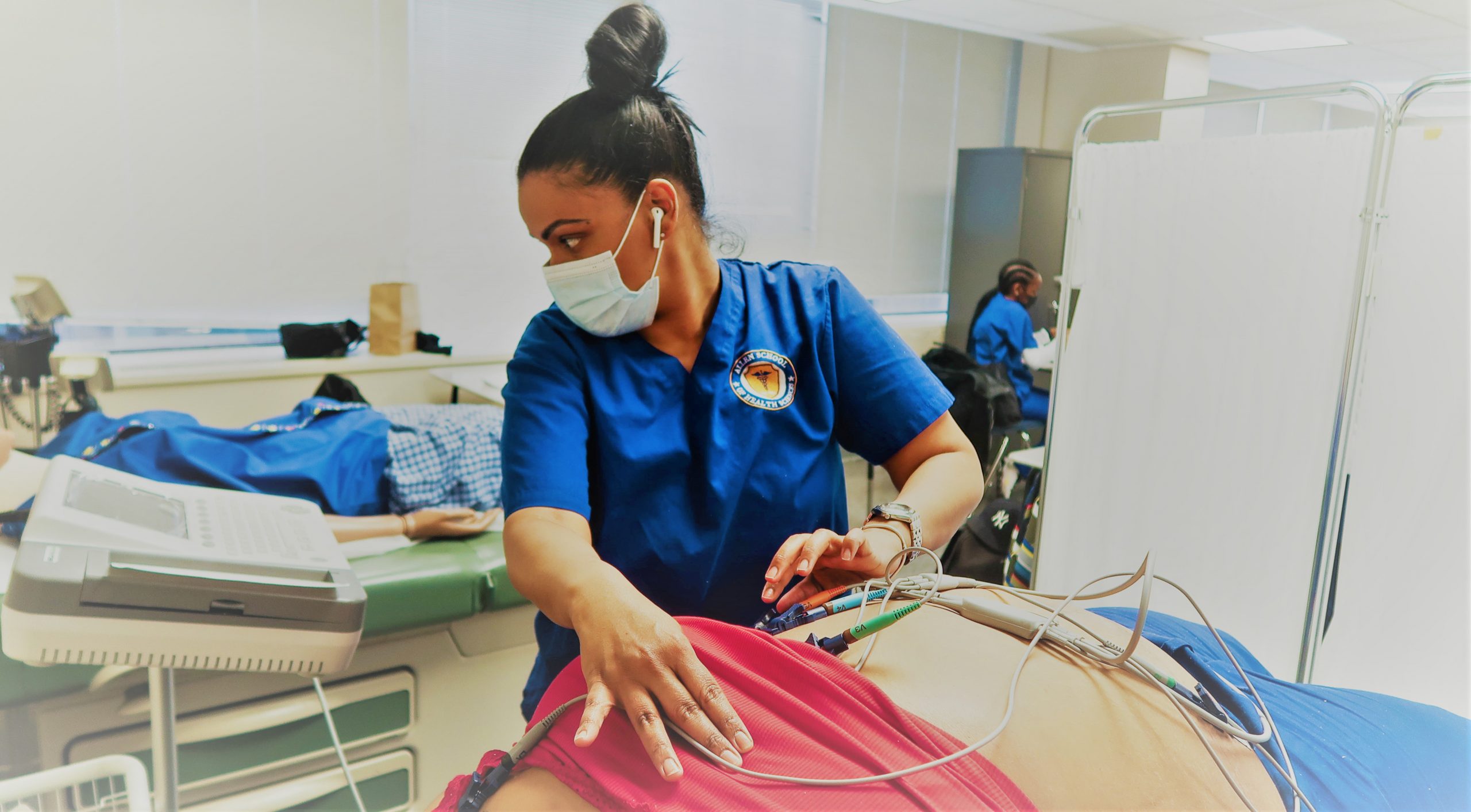
The Allen School of Health Sciences teaches EKG in a 50-hour theory and clinical based lab class as part of our Medical Assistant program curriculum. Electrocardiograms are diagnostic tests used to examine heart function. Once done only in hospitals, most EKGs can now be performed in doctor’s offices by a trained Medical Assistant. It’s a time saver for patients and an important source of data for physicians.
What is an EKG?
Developed in 1903 by Dutch physician William Einthoven, an electrocardiogram, or EKG, painlessly records electrical activity in the heart. It maps voltage from different angles, converting electrical signals into a wave-like tracing. Doctors can tell how the heart is functioning by measuring the peaks and valleys in the waveform.
How Is an EKG Performed?
Electrocardiograms are performed with electrocardiographs; machines that measure voltage through electrodes attached to the skin. There are several types of EKGs a Medical Assistant can assist with.
The most common is the 12-lead EKG. This uses ten electrodes and 12 leads to produce twelve unique reference points and six waves, P, Q, R, S and T, for doctors to examine. This test is done with the patient in a recumbent position and takes just minutes to complete. Doctors can also order portable EKGs for patients who have occasional or activity-related cardiac symptoms.
Known as event monitoring, these devices measure a few inches and can be worn for weeks to catch the rare abnormalities a conventional EKG might miss. Wireless monitoring centers receive readings in real-time. Patients press a button whenever symptoms occur, and the physician can cross-reference them to determine if they coincide with irregularities in heart rhythm.
A Medical Assistant working with a cardiologist may assist with a stress test. This test has an EKG taken while a patient walks on a treadmill or rides a stationary bicycle and shows how the heart performs under physical stress. Because there’s some risk to patients who are already experiencing potential cardiac symptoms, a Medical Assistant never performs this test alone and are directly supervised by a physician.
Ready to start helping patients? To learn more about the Allen School of Health Sciences and our medical assistant program and curriculum contact us today! Classes are starting soon. www.allenschool.edu
